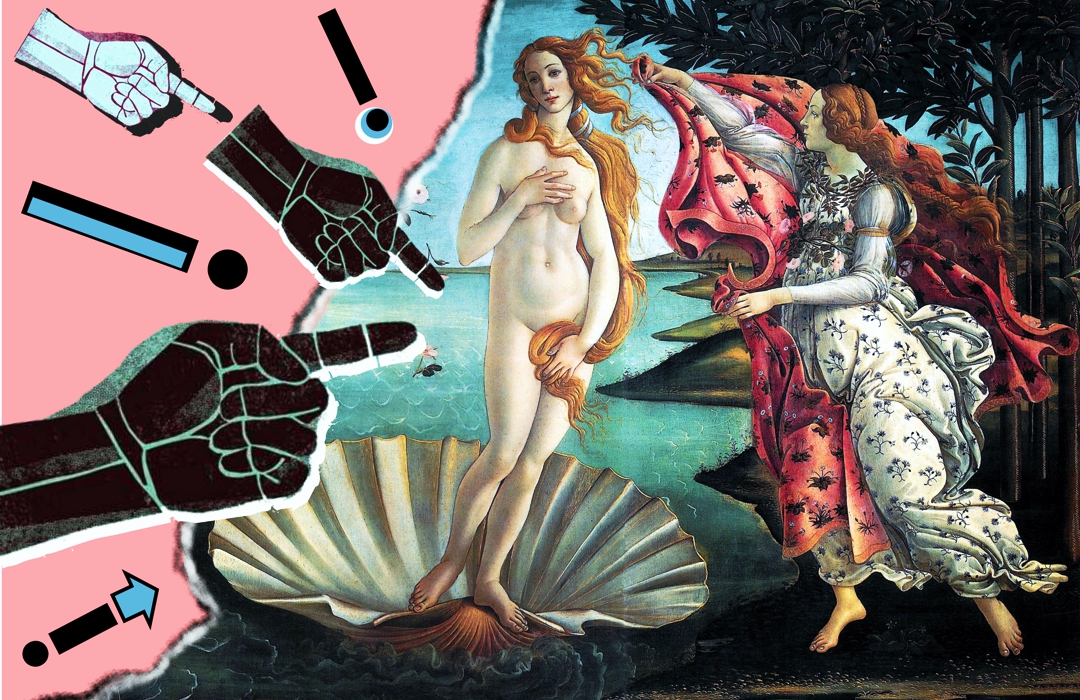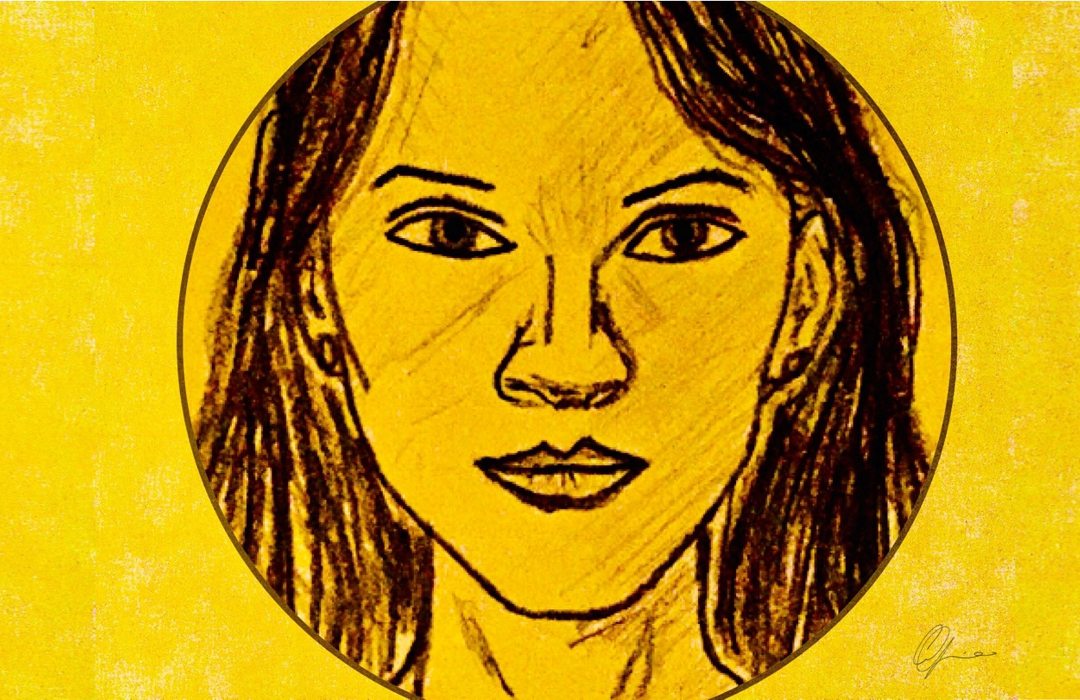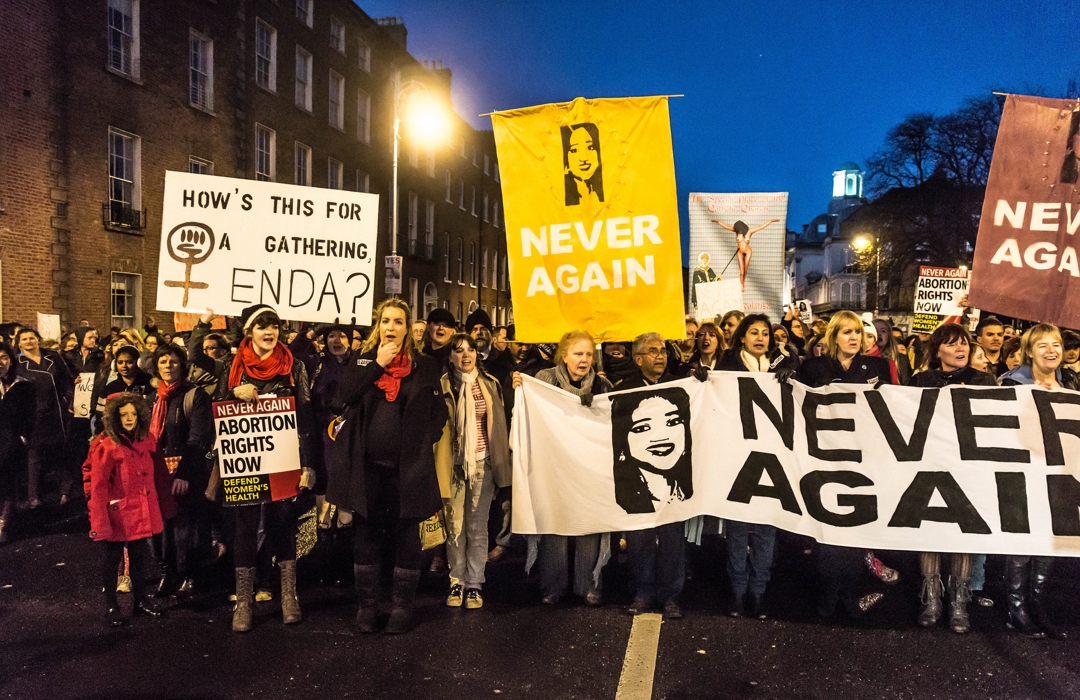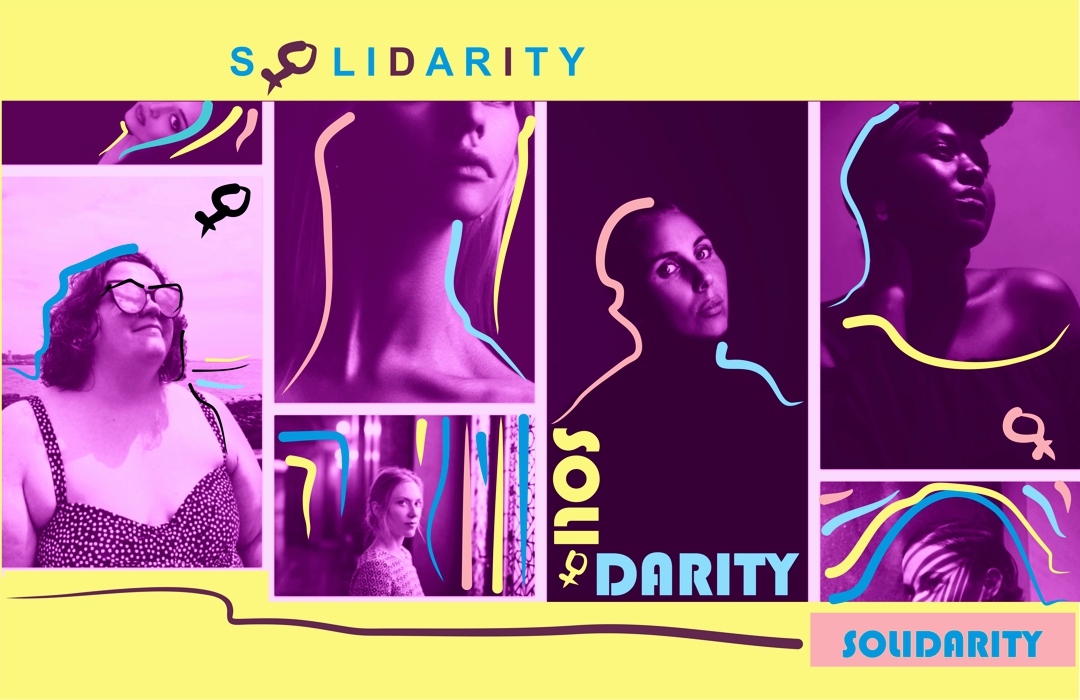
Although still a taboo, abortion has entered public debate—the fact that marks a fundamental societal shift. Time will tell whether Malta’s pro-choice campaign will eventually repeat the success of the Irish one. For now, let us revisit the arguments in favour of legalising it.
Text and collage by the IotL Magazine
[dropcap]A[/dropcap]bortion has been one of the most debated matters in Malta in the past year. Malta is the only EU country with a total ban on abortion. Although the anti-choice perception dominates public opinion (according to a Malta Today survey, 83% of respondents object to abortion in the first 12 weeks of pregnancy), the fact of having a debate on the matter and the launch of a Pro-Choice coalition Voice For Choice—L-għażla Tagħha signify a major shift.
The IotL Magazine sought to contribute to the debate by providing a platform to a pro-choice stance. We intended to cover this contentious issue from numerous viewpoints. Why is abortion still a taboo in Malta? How does it affect women who passed through the procedure? What do medical doctors have to say about it? And, finally, what insights does the recent success of a Pro-Choice movement in Ireland offer to campaigners in Malta?
![]()
1. Abortion and Relatedness: Breaking the Silence
by Rachael Scicluna
Why is abortion still a taboo in Malta? Despite the rapid social changes of the past years—legalisation of divorce and same sex marriage—strong family relations and kinship networks are still the basis of Maltese society. In this context, abortion invokes a sequence of deep-rooted associations which link the concept of embryo to the sense of family and relatedness. In a kin society like Malta, breaking the connection between the embryo and the woman’s body could be perceived akin to dismantling other ties that hold the family and society together.
Therefore, when people strongly object to abortion, it might not be because they solely disagree with it, but because—whether realising this consciously or not—they understand that they will have to adapt to change, to new practices, new rules and new behaviour. The change threatens their familiar world and their status quo. Read more here.
2. ‘The Stigma of Abortion Traumatised Me as Much as the Procedure Itself’
by Raisa Galea

Malta is the only EU country with a total ban on abortion. Regardless of its illegality, abortion is a reality, with women who can afford it travelling abroad for abortion services. This confession of a woman who had to access abortion services abroad proves that stigma of abortion scars women. She laments the stigma of young mothers in Malta, adding that she could cope with contempt for her past lifestyle, but not the abortion. “I could not tell my story because I’d lose friends, colleagues and jobs.” Read more here.
3. On Abortion: Women’s Solidarity Through Personal Narratives
by Liza Caruana-Finkel
Silence can act as a tool of oppression. It bars those who have had an abortion from contributing to the dialogue on abortion; from a conversation that involves them. A vicious circle exists, whereby women’s experiential knowledge is indispensable to a change in public perception, but where women refuse to speak up publicly because of public perception.
Another problem is that silence masks the reality of the experience of abortion and underestimates its prevalence. When women’s stories remain hidden, abortion continues to be deemed an ‘extraordinary’ and ‘rare’ event. Hence, abortion opponents miss out on interactions which might make them more tolerant and empathic towards women who seek and have abortions.
Liza Caruana-Finkel spoke with six Maltese women who travelled abroad for an abortion, and one who took the morning-after pill (MAP) before it became available in Malta and had looked into ways to access abortion abroad. Read more here.
4. On Abortion in the Context of Malta: a Medical Doctor’s Perspective
by Gilbert Gravino

It is extremely important to differentiate between being anti-abortion at an individual level and being anti-legalising-abortion (anti-choice), a distinction that is often overlooked. It is perfectly reasonable and respectable for individuals who would never have an abortion themselves to be pro-choice.
In any medical condition it is always best practice to avoid medications and surgery wherever possible, as these always have side effects and risks. However, in certain circumstances where their benefit outweighs the risk, it may be sensible to use these methods. The same applies for abortion.
Ideally, the scenario of an unwanted pregnancy and the need for abortion is avoided altogether. However, unwanted and complicated pregnancies continue to happen due to the unforeseen circumstances already mentioned. In these cases, given the woman is in favour of having a termination, the benefit of an abortion could outweigh the risks. When carried out in a professionally controlled manner (as is the case in countries where it is legal) these are generally very safe (although still carrying certain risks as with any other medical procedure or surgery). Needless to say, a pregnancy also has its own risks. Read more here.
5. The Road to Repeal: How Ireland Said ‘Yes’
by Beatrice White

On May 25, 2018, the people of Ireland voted overwhelmingly in favour of repealing the 8th amendment of the Irish Constitution—the article that had hitherto made it effectively impossible to legislate for abortion even in the most extreme of circumstances.
The number of women who came forward to share their own personal stories during the campaign proved decisive. Floods of powerful testimonials were published on social media, including devastating cases of women forced to travel for terminations of pregnancies even where a fatal foetal abnormality meant the baby would not survive after birth, because doctors were unable to act in Ireland if a heartbeat could still be detected.
A platform Everyday Stories—a website collecting stories from women about how they had been affected by the 8th amendment—shed light on the realities that real women have faced. Read more here.
6. [LISTEN] Discussing Abortion: on the Limits of Choice, Individualism and Protecting the Vulnerable
In this podcast, Raisa Galea discusses the debate on abortion in Malta with Andrea Dibben, a social policy academic and chairperson of Women’s Rights Foundation, and David Zammit, Head of Department of Civil Law at the University of Malta.
Together, they reflect on the reasons for resistance to legalising abortion in Malta as well as its moral, legal and social aspects. What are the limits to personal choices? Does every living thing truly wish to live? Who are the most vulnerable beings deserving protection—pregnant women or embryos? These and other questions are discussed in the podcast.
![]()
This list is to be continued.

Leave a Reply